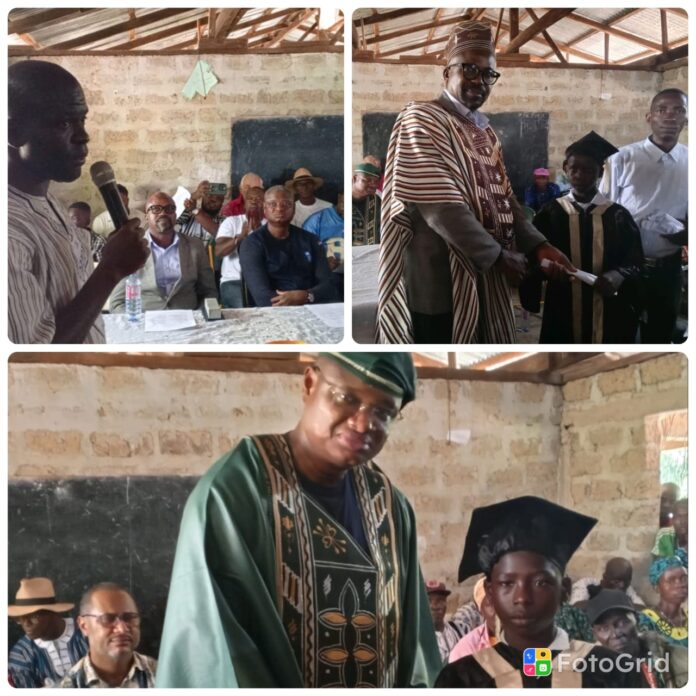—-EPA Boss Mobilizes Support for Yarkpawolo Public School and Women’s Development
Gomue Town, Bong County – July 20, 2025 — A powerful wave of grassroots development is taking shape in Zota District, Bong County, as Dr. Emmanuel K. Urey Yarkpawolo, Executive Director of the Environmental Protection Agency (EPA), successfully mobilized support for the Yarkpawolo Public School during its 5th closing ceremony on July 17, 2025. The event marked a pivotal moment for community-driven transformation, as UNDP, government officials, and local leaders pledged to boost education, infrastructure, and women’s empowerment across Gomue and surrounding areas.
The school—established by Dr. Yarkpawolo in 2018—serves as a beacon of opportunity in a region historically underserved by Liberia’s national development priorities. Located in a remote community near the Guinean border, Gomue had long suffered from a lack of educational and infrastructural access. Today, the Yarkpawolo Public School stands as a living testament to what visionary local leadership and strategic partnerships can accomplish.
From Exile to Education Leader: A Personal Mission
Dr. Yarkpawolo’s emotional reflections at the event served as both an inspiration and a rallying cry. Born in Gomue, he began formal schooling at nearly 14 years old while living in a refugee camp in Guinea—an experience that shaped his life-long dedication to equitable access to education. Now a PhD holder and head of Liberia’s EPA, he has returned to his roots to invest in the very community that once lacked the educational opportunities he now champions.
“Education is the bedrock of sustainable development,” Dr. Yarkpawolo said. “This school is not just a structure—it’s a promise that no child from Gomue will be left behind because of geography.”
UNDP Steps In: Linking Education and Women’s Empowerment
The ceremony attracted the attention of the United Nations Development Programme (UNDP), whose Resident Representative to Liberia, Aliou M. Dia, pledged both technical and financial support for the completion of the school. Mr. Dia emphasized the connection between rural development and inclusive growth, especially the need to integrate women’s empowerment into educational investments.
“We will support the completion of this school project,” said Mr. Dia. “And we will also partner with women groups in Gomue. Empowering women is essential to empowering the entire community.”
UNDP’s support is expected to target vocational training programs, small-scale agricultural initiatives, and entrepreneurship support for rural women—an approach aligned with data showing that when women have access to education and income-generating opportunities, household welfare improves significantly. According to the World Bank, every additional year of schooling for girls increases their future earnings by 10–20% and boosts national economic growth.
Infrastructure Still a Barrier: Public Works Responds
While the school’s progress is a cause for celebration, infrastructure remains a major challenge in Zota District. Minister of Public Works, Roland Giddings, acknowledged the poor state of road access to Gomue and announced plans to deploy engineers to assess the area in the upcoming national budget cycle.
“If the community can organize a self-help road project, the government will meet them halfway,” Giddings stated.
The government’s ARREST Agenda—focused on roads, energy, education, sanitation, and tourism—is expected to guide this initiative. However, local collaboration is key. Encouragingly, notable native and humanitarian Quanuquanei Alfred Kermue was recognized for his role in helping open an initial access path to Gomue, alongside Dr. Yarkpawolo and village volunteers.



